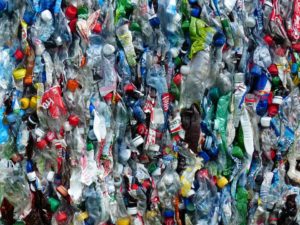 Let’s play a little game. Look around you and take note of how much plastic you can see. Is there a water bottle on the side? Perhaps there’s some food packaging littering your floor. Maybe even a polypocket with some dubious notes from a hungover tutorial.
Let’s play a little game. Look around you and take note of how much plastic you can see. Is there a water bottle on the side? Perhaps there’s some food packaging littering your floor. Maybe even a polypocket with some dubious notes from a hungover tutorial.
Now guess how much of that stuff there is lying uselessly on the planet.
What you can see is part of your contribution to the 8.3 billion tonnes that has accumulated on Earth since plastic’s invention little over 100 years ago. 8.3 billion tonnes is difficult to comprehend, so imagine this as equivalent to 1 billion elephants, or 25,000 Empire State buildings.
It is undeniably a useful material, yet its advantages themselves are what makes it such a problematic material. Plastic is synthetic; made of organic polymers such as polyethylene. It is generally not biodegradable, making it ideal for food storage and construction, but unideal for the environment. With only 9% of global plastic being recycled and 12% being incinerated, 79% is left to accrue in landfill, the oceans, and on land habitats, disturbing natural ecosystems and becoming an eyesore on beautiful landscapes. With the global population and their material demands skyrocketing, this situation is set to worsen, with 12 billion tonnes predicted by 2050 according to researchers at the University of California.
This appears to be a pretty bleak picture, painted using PVA and Teflon. But don’t lose hope. Efforts to increase recycling are being pushed and have managed to reach rates of 30% in Europe. New technology will be key both to clearing up the mess, and stemming the source of the problem. Innovative technology as part of ‘The Ocean Cleanup’ proposed to clean up the Great Pacific Garbage Patch has been deemed effective and viable. Scientists have successfully genetically engineered bacteria to synthesise biodegradable plastics which albeit expensive at present, could well be the future of plastic production.
Let’s go back to that game that we were playing at the beginning. Take another look at the unwanted bits of plastic around you. Now pick it up, do your bit, and recycle it.